Chapter: Civil : Design Of Steel Structures
impImportant Question And Problems With Answer: Connections - Riveted, Welded & Bolted
Important
Question and Problems With Answer: CONNECTIONS - RIVETED, WELDED & BOLTED
1. Mention
the advantages and disadvantages of steel structures? Advantages:
Ability
to resist high loads
Due to its high density, steel is completely
non-porous Durability
Easy to disassembling or replacing some steel
members of a structure Disadvantages:
Corrosion
At
high temperature steel loses most of its strength, leading to deformation or
failure
2. What
is meant by Girder?
Girder
means a major beam frequently at wide spacing that supports small beams.
3.
What is meant by joists?
It
is a closely spaced beam supporting the floors and roofs of buildings
4.
What is meant by Purlins?
It
is a roof beam usually supported by trusses
5.
What is meant by Rafters?
It
is a roof beam usually supported by purlins
6.
What is meant by Lintel?
It
is a beam over window or door openings that support the wall above.
7.
What is Girts?
It
is horizontal wall beams used to support wall covering on the side of an
industrial building 8. What is meant by Spandrel beam?
It is beam around the outside perimeter of a floor
that support the exterior walls and the outside edge of the floor
9. Name
the different types of connections? Riveted connections
Welded
connections Bolted connections
Pinned
connections
10.Name
the types of riveted connections?
Lap Joint - single riveted and double riveted Butt
joint - single cover and double cover
11.What
is meant by rivet value?
The
least of the strengths in shearing and bearing is the rivet value
12.
What is meant by gauge distance?
The perpendicular distance
between two gauge lines, is called gauge distance
13.Name
the different modes of failure of a riveted joint? Tearing failure of the plate
Shear
failure of the plate Shear failure of the rivet Bearing failure of the rivet
Splitting failure of plate
14.As
per the American practice where the neutral axis lie in the rivet group?
It
is assumed that the line of rotation lies at a distance of 1/7 th of the
effective bracket depth from the bottom of the bracket
15.What
are the factors that govern will govern the structural design? Foundation
movements
Elastic
axial shortening Soil and fluid pressures Vibration
Fatigue
Impact (dynamic effects) Erection loads
16.What
are the load combinations for the design purposes? Dead load + Imposed Load
(Live load)
Dead
Load + Imposed Load + Wind Load or earthquake load Dead Load + Wind Load or
Earthquake load
17.What
are the steps involved in structural design? Forces or loads
Structural
arrangement and material selection
Analyzing internal stresses
Proportioning of members
18. Which type of steel is most commonly used in
general construction? Why?
Mild Steel is most commonly used in
general construction because of its
durability
and malleability
19. What are Black bots? Where are they used?
Black
bolts made from M.S shank left unfinished - remain loose in holes resulting in
large
deflections.
It is used during erection and for temporary structures
20. How the rolled steel beams are classified? Indian
Standard junior beams (ISLB) Indian Standard light beams (ISLB)
Indian
Standard medium weight beams (ISMB) Indian Standard wide flange beams (ISWB)
21. Define permissible stresses and Working
stresses.
Permissible
stresses = yield stress
factor
of safety
Working
stresses: The stresses used in practical design are working stresses and they
should never exceed the permissible stresses specified by codes.
22.
Explain ISLB 200?
ISLB
200 means Indian Standard light gauge beams of depth 200mm 23. Name the types
of beam connections?
Framed
connections
Seated
connections - Stiffened connections and Unstiffened connections 24. What is
meant by framed connections?
A
framed connection is the one when a beam is connected to girder or a stanchion by
means of two angles placed on the two sides of the web of the beam
25.
When the seated beam connections are preferred and name the types?
When
a beam is connected to the flange (or the web) of a steel stanchion, the width
of the flange (or the depth of the web) may be insufficient to accommodate the
connecting angles, in such cases framed connection is not suitable and seated
connection is preferred.
26.
What is unstiffened seat connection?
The
seated connection is a horizontal angle with its horizontal leg at its top is
used to
receive the beam on it, in such a case it is
called unstiffened seat connection
27.
What is stiffened seat connection?
In
addition to the seat angle, a web cleat is provided when the beam is connected
to a
beam
and a flange cleat is used
when the beam
is connected to
a stanchion. The
angle
cleats are essential because they keep the beam stable in a vertical
position and prevent it
from
lateral buckling
28.
What is meant by throat thickness?
It
is the perpendicular distance from the root to the hypotenuse of the largest
isosceles
right-angled triangle that can be inscribed within the weld cross-section.
Throat
thickness = 0.7 x size of the weld 29. What is plug weld and slot weld?
Slot
weld is one of the type of weld used to join the two touching contiguous
components
by a fillet weld round the periphery of a slot in one component so as to join
it the surface of other component.
Plug
weld is made by filling in a hole in one part with filler metal so as to join
it to
the
contiguous part exposed through a hole.
30.
Mention the advantages and disadvantages of welded connections?
Advantages:
Economy
Rigidity
Aesthetic
effect
Versatility
Disadvantages:
Requires
skilled labour
Joints
are over rigid
Difficult
to inspect
31.
State the common defects in
welding
Incomplete
fusion
Incomplete
penetration
Porosity
Slag inclusions
Cracks
Under cutting
32.
Name the types of bolted connections?
Ordinary
unfinished 0r black bolts
Turned and
fitted bolts
High strength
bolts
33.Write
the advantages of high strength bolts?
As
there is no slip between the plates, the joint is rigid
Alternating
loads cause little variation of the stresses in the bolts; hence fatigue
strength is
also high.
No shearing or
bearing stresses occur in bolts.
High strength of
the joint due to high frictional resistance is obtained.

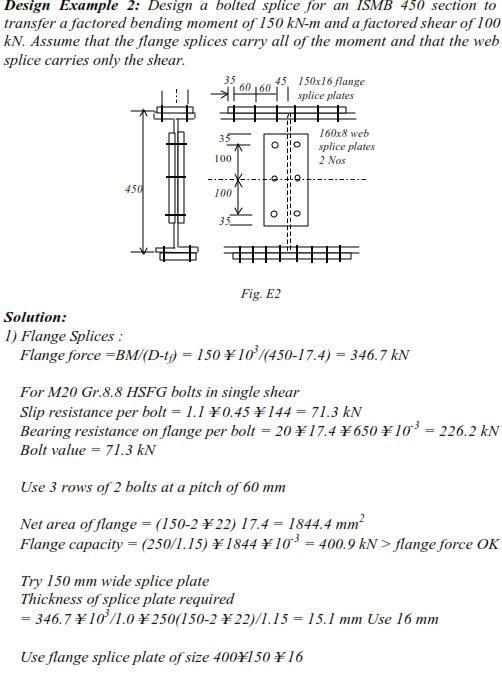
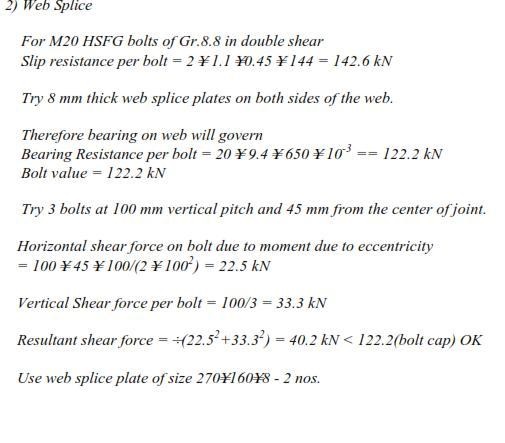
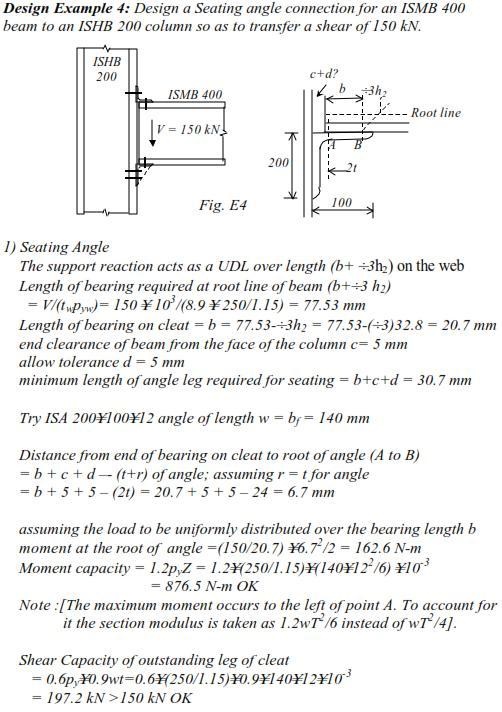
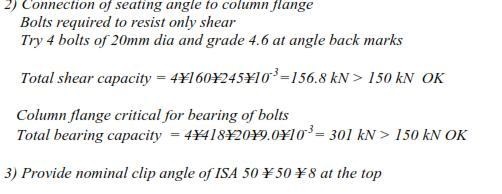
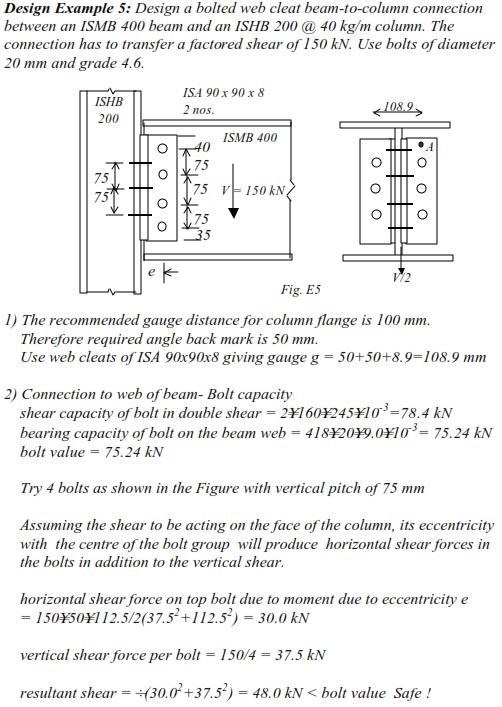
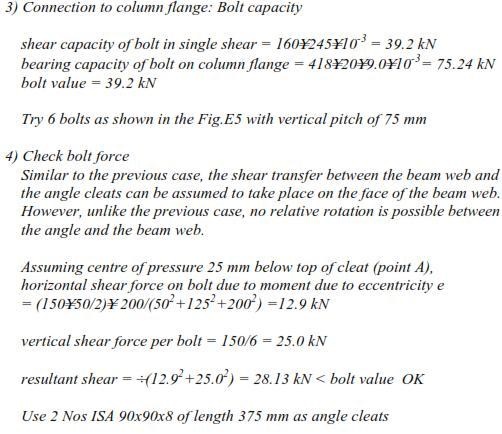
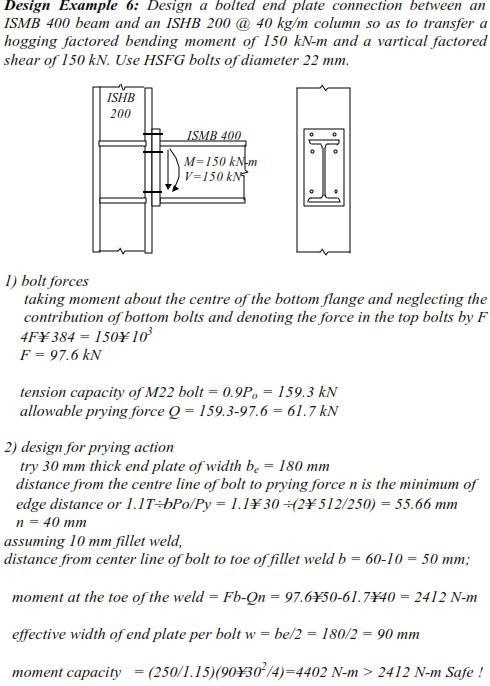
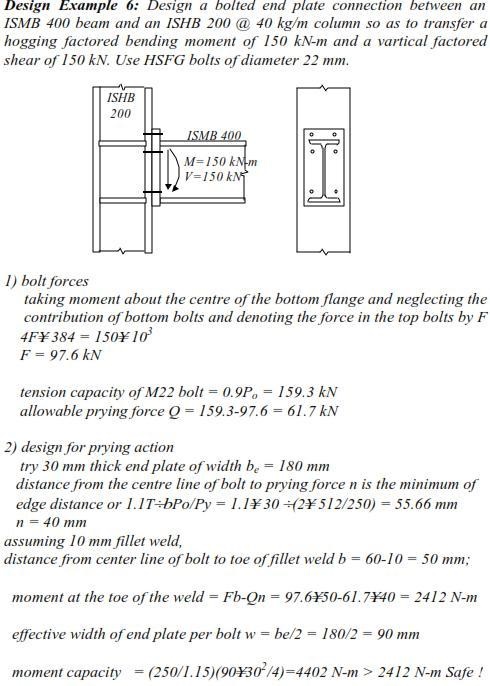
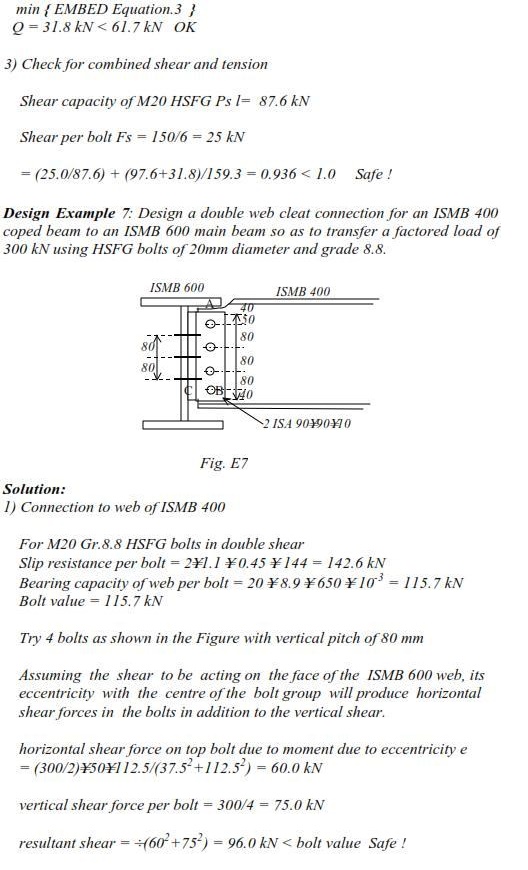
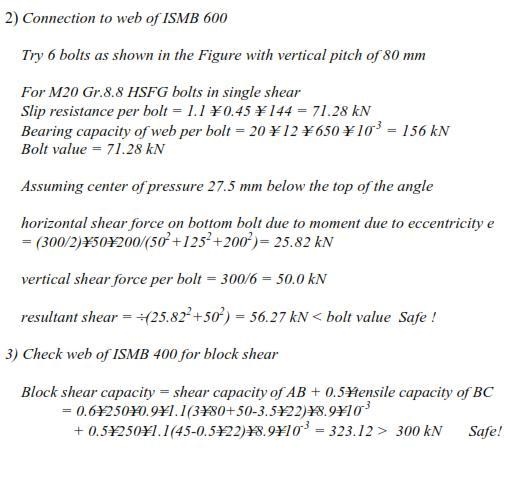
Related Topics